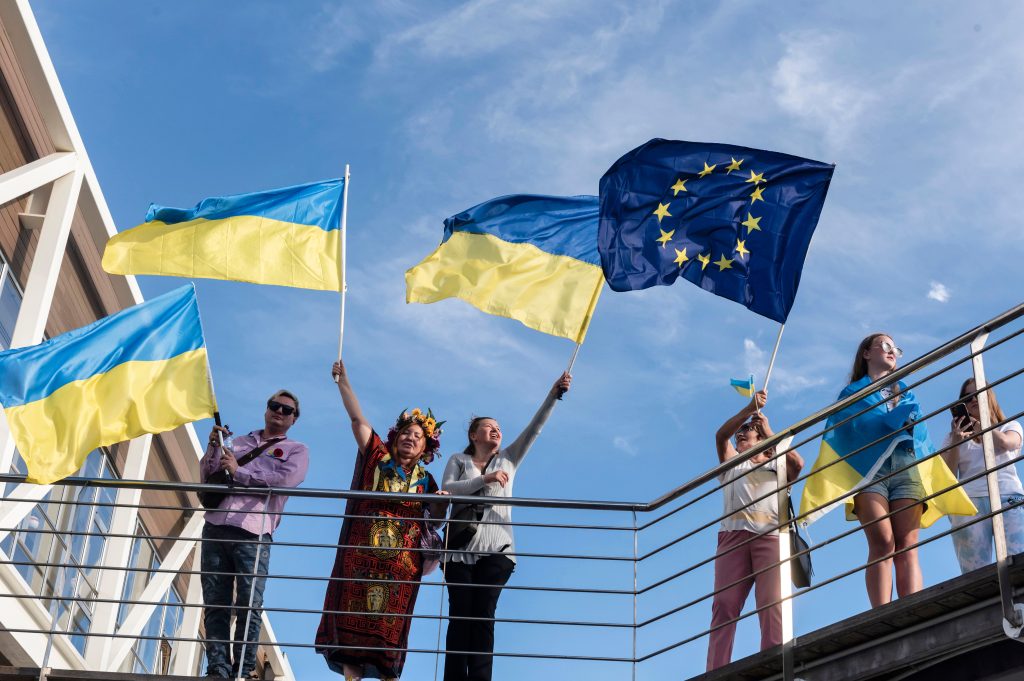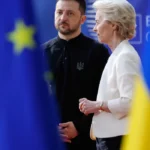European leaders have serious reservations about the integration of Ukraine and other candidate countries into the European Union, as revealed in an article by the Financial Times. The divisions are so deep that some officials have even considered the possibility of abolishing the national veto right of member states altogether in order to facilitate the accession process.
The presidents and prime ministers of the EU’s ten largest states gathered in Brussels for a private, closed-door meeting at the Amigo Hotel in late June, and some of them expressed concerns about the arduous task of integrating Ukraine into the Union, despite their official pro-Ukrainian rhetoric.
In off-the-record interviews with the Financial Times, many diplomats expressed fears that the EU would overstretch its political and economic capacities with Ukraine’s accession, which would radically upset the balance of power within of an already divided block.
Ukraine applied for EU membership almost from the start of the ongoing Russian invasion. But many officials are privately downplaying promises made by Commission President Ms von der Leyen and even saying it is uncertain whether Ukraine will be allowed to join the EU.
Officials reportedly lamented the need to change EU treaties and risk backlash at home, as well as the exorbitant cost of rebuilding Ukraine once the guns fall silent.
EU agricultural policy would also have to be totally changed as Ukraine would become the biggest beneficiary of the Common Agricultural Policy (CAP), ending the traditional dominance of French agricultural interests over policy-making in Brussels. .
The political reaction seen in Eastern Europe following a glut of Ukrainian grain imports being rerouted to Europe is seen by many leaders as a sign of things to come, when agrarian populism is already in full swing. booming.
“Ukraine has not even entered the EU yet that it has already damaged the single market”, reacted a skeptical diplomat. Removing national vetoes to allow Ukraine’s admission is seen as an external possibility as well as a long-term goal for EU federalists, but one that is deemed politically unfeasible at present.
If approved, Ukraine would become the EU’s fifth largest member by pre-war population and the top net recipient of EU financial aid, given that the level of life there is lower than that of Bulgaria, the current poorest member of the Union.
The French have reportedly offered creative solutions to the problem, including gradual membership and partial regionalization of the EU, to avoid the logistical problems the EU faces with Ukraine and future candidate countries.
Following recent spats with Hungary and Poland over the rule of law, many EU progressives also want built-in guarantees that Ukraine will abide by liberal values if it joins the EU. ‘Union.
“We have seen such a setback in Poland and Hungary. This means that we now apply much stricter laws for the candidate countries with regard to the rule of law, checks and balances, the system, the independence of the judiciary, anti-corruption measures and the media,” said Věra Jourová, Commissioner for Transparency, as long-running disputes over the rule of law are expected to resume more beautiful after the war.
Currently, eight countries are candidates for EU membership (Turkey, Macedonia, Montenegro, Serbia, Albania, Moldova, Ukraine and Bosnia), with the Union hastening to to integrate the Western Balkans despite fears that Serbia is acting as a Russian fifth column in EU decision-making.
EU membership requires the unanimous approval of all member states in the European Council, as well as candidate countries, which must fully align with EU standards in legislation and then sign a final treaty . According to a poll, 91% of Ukrainians are in favor of EU membership, as are a majority of EU citizens.
Like NATO, EU membership is seen as necessary to prevent future acts of aggression from Russia, with Brussels and the various European countries having already provided billions of euros in aid and military equipment since the beginning of the confrontation with Moscow.
This article is originally published on atlantico.fr







